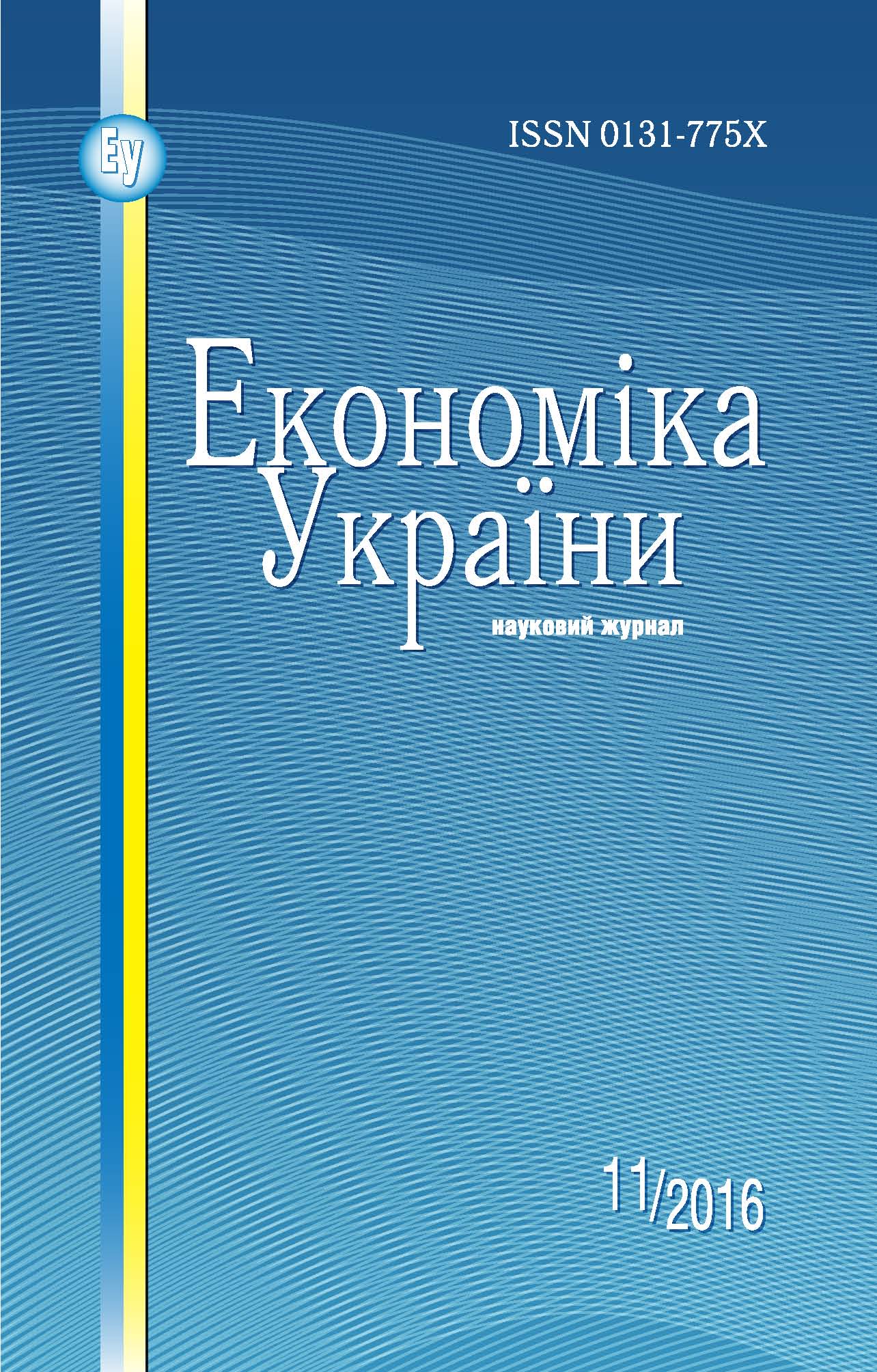SOCIAL CONSEQUENCES OF THE DEVELOPMENT OF A HUMAN LABOR
Keywords:
labor, social consequences, laws of development, human and labor potentials, human capital, economic formations, social relations, methodology of quantitative evaluation, social standards and normatives, social partnership, added valueAbstract
The appearance and the development of a human labor, which are related to the establishment of a person on our planet as a carrier of the own potential, testified to the start of the human era and the civilization existing under conditions of the arising of permanent socio-economic contradictions in the society that are generated by the very nature of persons and by consequences of their labor.
The social consequences of the development of a human labor are understood as a result of the targeted useful activity of persons under the influence of manifestations of the system of objective laws of development of the Nature and the society that is realized in the continuous development of productive forces and in the transformation of production relations in the society, as well as in the aspiration of the humanity to the perfectness of the spiritual, material, and social life of persons themselves.
But, in the modern time, the humanity has entered, in essence, in the epoch of the global development of productive forces and economic possibilities. At the same time, the system of oligarchic capitalism has immersed the world community into the chaos of social relations and into the strip of wars and international conflicts, revolutions, terrorism, corruption, exploitation of a person by a person, and the inequality of distributive relations destroying the spiritual, material, and social bases of people. Therefore, the humanity and the economic science should comprehend the aims and the law of coexistence of persons on the basis of the noospheric approach, the system of other objective laws of development of the Nature and the society, the essence of the category of social consequences of a labor, and the new methodology, which is proposed in the present article and is aimed at the formation of a labor potential structure, and should substantiate the proportions of a distribution of the as-formed values between the owners of the labor potential.
Those proportions can become a scientific basis for the substantiation of a volume of legislatively established standards and normatives in the system of social partnership, which will allow one to specifically discussed the ways of socialization and humanization of the capitalistic means of production and its social relations.
References
Vernadskii V.I. Biosfera i Noosfera [Biosphere and Noosphere]. Moscow, Airis-Press, 2004 [in Russian].
Smith A. Issledovanie o Prirode i Prichinakh Bogatstva Narodov [An Inquiry into the Nature and Causes of the Wealth of Nations]. Moscow, Eksmo, 2007 [in Russian].
Ricardo D. Nachala Politicheskoi Ekonomii i Nalogovogo Oblozheniya [On the Principles of Political Economy and Taxation]. Moscow, Gospolitizdat, 1955 [in Russian].
Marx K., Engels F. Naemnyi Trud i Kapital [Hired Labor and Capital]. Moscow, Politizdat, 1957, Collection of Works, Vol. 6 [in Russian].
Marshall A. Printsipy Economicheskoi Nauki [Principles of Economics]. Moscow, Progress, 1993 [in Russian].
Samuelson P.A., Nordhaus W.D. Ekonomika [Economics]. Moscow, Vil’yams, 2000 [in Russian].
McConnell C.R. Ekonomiks: Printsipy, Problemy i Politika [Economics: Principles, Problems, and Policies]. Kiev, KhaGar, 2000 [in Russian].
Taylor F. Nauchnaya Organizatsiya Truda i Upravleniya [The Principles of Scientific Management]. Moscow, Ekonomika, 1965 [in Russian].
Strumilin S.G. Problemy Ekonomiki Truda [Labor Economy Problems]. Moscow, Nauka, 1982 [in Russian].
Gastev A.K. Kak Nado Rabotat’. Prakticheskoe Vvedenie v Nauku Organizatsii Truda [How to Work. Practical Introduction in the Labor Organization Science]. Moscow, Ekonomika, 1966 [in Russian].
Kudryavtsev A.S. Sotsialisticheskaya Organizatsiya Obshchestvennogo Truda [Socialist Organization of the Social Labor]. Moscow, Ekonomika, 1974 [in Russian].
Gal’chinskii A. Marks i Sovremennyi Mir: Gumanisticheskaya Dominanta [Marx and Modern World: Humanistic Dominant]. Kiev, Lybid’, 2015 [in Russian].
Kolot A.M., Grishnova O.A. , Gerasymenko O.O. et al. Ekonomika Pratsi ta Sotsial’no-Trudovi Vidnosyny, za nauk. red. A.M. Kolota [Economy of Labor and Socio-Labor Relations], edited by A.M. Kolot. Kyiv, KNEU, 2009 [in Ukrainian].
Libanova E.M. Nerivnist’ za dokhodamy v suchasnii Ukraini, v: Sotsial’no-Trudovi Vidnosyny: Teoriya i Praktyka [Inequality in incomes in the modern Ukraine, in: Socio-Labor Relations: Theory and Practice]. Kyiv, KNEU, 2014, pp. 26–36 [in Ukrainian].
Bogynya D.P., Grishnova O.A. Osnovy Ekonomiky Pratsi [Foundations of the Labor Economy]. Kyiv, Znannya-Pres, 2000 [in Ukrainian].
Kim M.N. Ekonomika Truda i Sotsial’no-Trudovye Otnosheniya [Labor Economy and Socio-Labor Relations]. Khar’kov, Tochka, 2015 [in Russian].
Genkin B.M. Ekonomika i Sotsiologiya Truda [Economy and Sociology of Labor]. Moscow, Norma, 2009 [in Russian].
Volgin N., Val’ E. Motivatsionnaya osnova effektivnosti truda [The motivative basis of the labor efficiency]. Chelovek i Trud – Person and Labor, 2000, No. 4, pp. 75–84 [in Russian].
Kolot A., Gerasymenko O. Tsinnosti trudovogo zhyttya ta gidna pratsya: filosofiya vzaemodii i rozvytku [Values of the labor life and the worthy labor: the philosophy of interaction and development]. Ukraina: Aspekty Pratsi – Ukraine: Aspects of Labor, 2016, Nos. 1-2, pp. 3–13 [in Ukrainian].
Pavlov M.Yu. Innovatsionnoe razvitie ekonomiki Rossii v kontekste realizatsii tselei chelovechestva, v: Innovatsionnoe Razvitie Ekonomiki Rossii: Institutsional’naya Sreda. IV Mezhd. Konf., Moskva, MGU im. M.V. Lomonosova, 20–22 aprelya 2011 g. [Innovative development of Russia’s economy in the context of a realization of purposes of the humanity, in: Innovative Development of Russia’s Economy: Institutional Medium. IV Intern. Confer., Moscow, M.V. Lomonosov MSU, April 20–22, 2011]. Moscow, TEIS, 2011, pp. 106–112 [in Russian].
Novyi Zavet Gospoda Nashego Iisusa Khrista [New Testament of Our Lord Jesus Christ]. St.-Petersburg, Synodal Typogr., 1892 [in Russian].
Schurè E. Velikie Posvyashchennye. Ocherk Ezoterizma Religii [Les Grands Initiés. Esquisse de’Histoire Secrete des Religions]. Moscow, Olma Media Grupp, 2013 [in Russian].
Kovalyov V.M., Gorshkov V.P. Strategichni napryamy rozvytku Ukrainy [Strategic directions of Ukraine’s development]. Form. Rynk. Vidn. v Ukraini – Form. of Market Rel. in Ukraine, 2014, Iss. 2 (153), pp. 3–11 [in Ukrainian].
Downloads
Published
How to Cite
Issue
Section
License
Copyright (c) 2024 Economy of Ukraine

This work is licensed under a Creative Commons Attribution-NonCommercial-NoDerivatives 4.0 International License.



